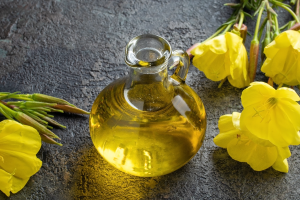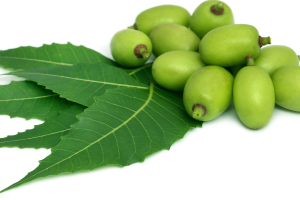

Dental diseases are highly linked to systemic diseases. They not just damage the teeth but affect body functions and impinge upon the quality of life. Ayurveda, the world’s oldest medicine system, relied solely upon oil pulling to maintain dental health and curb oral problems. This dates back to the era when toothbrushes and pastes weren’t invented. Thinking how oil pulling helped improve oral hygiene and health? Read through to know all about oil pulling and time-tested oil pulling benefits.
What is Oil Pulling?
Oil pulling is defined as an act wherein oil is swished around in the mouth. The act ‘pulls’ bacteria and plaque from the mouth, leaving it infection-free, clear, fresh and moisturised. Oil pulling also increases the production of saliva, which in turn inhibits subsequent bacterial growth.
The oil pulling method is simple. Take about a tablespoon of any edible oil like sunflower oil, coconut oil, or sesame oil. Coconut oil is considered to be the best oil for oil pulling. Once you put the oil into your mouth, move it around with a gush. Let the oil pass through your teeth with a rush. With every swish, make the oil reach the hard-to-reach areas. Make sure you do not ingest the oil but only move it around in your mouth. As you move the oil from side to side, the liquid will pick up some air. This will increase the oil’s volume.
To maximise oil pulling benefits, carry on doing the oil pulling action for around 20 minutes. While it will be difficult to get there straight away, start with five minutes and increase the duration gradually.
Once done, the oil will become thin, white and frothy. Spit the oil into the trash bin. End the oil pulling routine by brushing your teeth to remove the remaining oil from the mouth. For best results, do oil pulling once daily.
Oil Pulling Benefits
Oil pulling is an ancient Ayurvedic practice to promote oral hygiene. The benefits of oil pulling for teeth include:
1. Eliminates Harmful Mouth Bacteria
Our mouth hosts almost 700 different types of bacteria. Although not all are bad, certain types of harmful bacteria raise the risk of tooth decay, bad breath and gum disease. Oil pulling helps reduce the count of harmful mouth bacteria. Used as a standard mouthwash, oil pulling helps ‘pull’ away bacteria from hard-to-reach places in the mouth. Unlike mouthwash, oil pulling stimulates the production of saliva, which in turn helps reduce harmful mouth bacteria.
2. Eliminates Bad Breath
Bad breath or a foul smell from the mouth is a common oral problem. It affects almost 50% of the adult population. It is typically caused by oral infection, a gum disease, poor oral hygiene or the presence of tongue coating, which traps the bacteria underneath the plaque covering. Eliminating mouth bacteria helps reduce bad breath too. Oil pulling thus comes across as a natural alternative to eliminating bad breath-causing bacteria.
3. Helps Prevent Cavities and Caries
Dental cavities are widely prevalent. They are the visible signs of tooth decay. Dental cavities are caused due to poor oral hygiene, excessive sugar consumption, and plaque build-up. This causes uncontrolled growth of bacteria which leads to the formation of holes in the teeth known as dental cavities or caries.
Food particles that are stuck within the teeth are broken down by the mouth bacteria. This leads to the release of acid that destroys the tooth enamel and results in dental cavities. Oil pulling removes the food particles that are stuck between the teeth. It also reduces the count of harmful mouth bacteria, thus protecting against dental cavities.
4. Reduces Gum Inflammation
Gingivitis, a type of gum disease, is characterised by swollen, reddish sensitive gums that bleed easily. The disease is caused due to accumulation of plaque on the teeth that trap the bacteria inside. The growth of bacteria causes bleeding and gum inflammation.
Oil pulling is believed to be an effective remedy to remove plaque and thwart bacterial growth. The anti-inflammatory properties of coconut oil, the best oil for oil pulling, helps reduce gum inflammation and improve gum health.
5. Healthy Sinuses
The mouth hosts the bacteria. But the oral cavity is further connected to the oesophagus, nasal pathways, sinuses, and ear cavities. Thus, the growth of bacteria in the mouth directly affects the adjoining areas. Oil pulling is thus marked as an easy and effective treatment to prevent the growth of harmful bacteria that not just affects the mouth but damages surrounding tissues too.
Furthermore, the innate nutritional value of oil pulling oils nourishes the lymph nodes and sinus tissue, improving the overall health of the oral tissues and surrounding areas.
6. Helps in Detoxification
Dental problems fuel a range of systemic diseases. When the bacteria in our mouth grow to detrimental levels, they steadily enter the bloodstream and can cause life-threatening inflammation of the heart chambers and valves. The condition known as endocarditis is a common cause of heart arrest. The presence of mouth bacteria also increases the risk of complications during pregnancy and childbirth. Oil pulling works by eliminating the harmful mouth bacteria that spurs a series of complications. It thus helps in detoxifying the body’s natural processes.
7. Helps in Teeth Whitening
The plaque build-up lends a typical yellowish tinge to the teeth. If left untreated, this can cause permanent discolouration of teeth. But oil pulling works at eliminating plaque build-up from the teeth. This helps bring out the natural white shade of the teeth. Regular oil pulling for teeth can thus make them look pearl white and shiny.
When to Do Oil Pulling?
While you can do oil pulling before and after meals, for best results, it must be done on an empty stomach before breakfast. If doing it after eating, wait for at least four hours, as swishing oil after a meal can make you feel nauseous.
Oil Pulling Side Effects
There are no physical side effects of oil pulling. However, newbies can experience a series of side effects linked to vigorous motion. These are:
- Sore jaw
- Headache
- Dry mouth
- Muscle stiffness
- Exhaustion
- Loss of taste
- Excessive thirst
After oil pulling, one must not swallow the oil as it is full of germs. Accidental ingestion can therefore cause an upset stomach or diarrhoea.
If not done correctly, it can lead to the leaking of oil into the nasal passage. This can result in lipoid pneumonia, a condition marked by the inflammation of the lungs that is induced by fat particles.
Oil pulling is not a replacement or substitute for brushing and flossing. It must be added as a complementary treatment to promote oral health.
Best Oil for Oil Pulling
Invariably all plant-based edible oils can be used for oil pulling. But sesame oil, sunflower oil and coconut oil are popular choices. Of these, coconut oil emerges as a clear leader because of its better taste. Oil pulling benefits manifold with the use of coconut oil as it contains high amounts of antioxidants and anti-inflammatory agents. Furthermore, its high amount of lauric acid is a natural antimicrobial agent. It is effective in thwarting harmful mouth bacteria.
Conclusion
Oil pulling is an Ayurvedic practice. As a traditional Ayurvedic therapy, oil pulling involves swishing oil in the mouth to ‘pull’ out harmful bacteria. The practice thus ensures improved oral health. Other oils pulling benefits include detoxification of the mouth, healthier sinus, whiter teeth and reduced risk of gum infection and dental cavities.
However, not all oil pulling benefits are backed by modern science. Furthermore, accidental ingestion of swished oil can raise serious health concerns. It is also important to use the best oil for oil pulling and follow the correct oil pulling method, as almost all oil pulling side effects are linked to faulty technique.
But remember not to replace brushing and flossing with oil pulling. Instead, it must be added as a complementary treatment to promote oral health.




